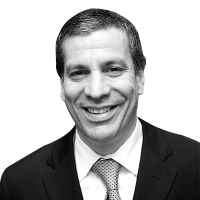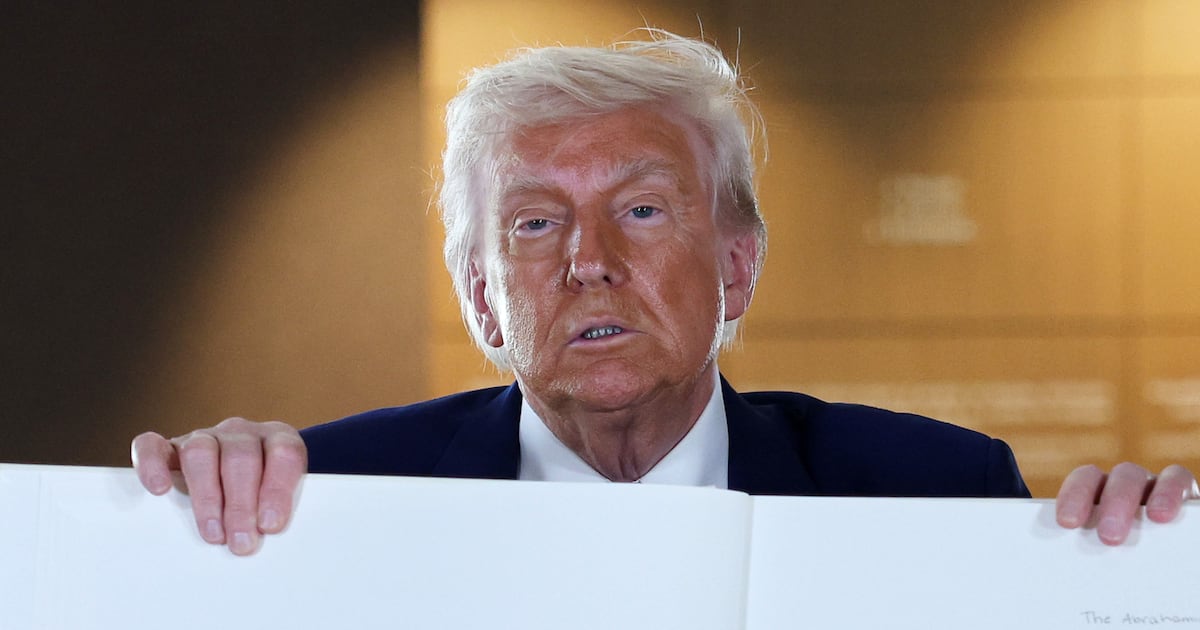
It’s kind of funny listening to the media spin the SEC’s charges that Goldman Sachs sold a batch of bonds to investors that were doomed to fail because they were designed, at least, in part by someone who secretly wanted them to: Billionaire hedge-fund manager and famous short-seller John Pauslon.
In the first place, there was the rush to judgment, which as a media talking head, I am guilty of as well. The case, financial pundits argued initially, must be a great one because the SEC wouldn’t have risked its already battered reputation by filing shaky charges against the mighty Goldman. And when the firm couldn’t come up with a coherent defense several hours after the announcement hit the wires, it was presumed that it didn’t have one.
Goldman will pay a fine—though not enough to break its bank. It made $12 billion last year and is on track for a repeat.
• A Primer on the Goldman Sachs Scandal • John Carney: Goldman’s Dirty Customers Then came the backlash against the prevailing wisdom: I reported that Goldman was given no warning about the exact timing of the charges; in other words, the SEC was so desperate for a victory after missing Bernie Madoff’s scam, it was looking for some cheap publicity with a case put together in a rush. Another report seemed to confirm that the SEC’s case is wobbly: The SEC’s commissioners who must approve the filing of civil fraud allegations were divided, 3-2, in favor of charging Goldman, indicating that the charges when they go before a judge and jury won’t necessarily be a slam dunk.
And let’s not forget the multiple reports today that John Paulson is throwing cold water on the extent of his involvement in putting together the investment in question, and that he even told the “independent” evaluator of the mortgages, ACA Capital, of his intention to short the bonds. Thus, his bet of their demise must have been known to everyone involved.
But two things are getting lost in all of this Goldman/SEC schadenfreude: First, the SEC’s case against Goldman and one of its executives involved in the now-infamous sale of a CDO to a German bank may not be a walk for regulators, but it is, according to the attorneys I speak to, far from insurmountable.
In fact, the conventional wisdom from attorneys who deal with the SEC on a regular basis is that in the end, the agency will get what it wants: a settlement from Goldman. The firm will pay a fine—though not enough to break its bank (it made $12 billion last year and is on track for a repeat)—but more than that, a precedent will be set that will help the SEC create new laws about how much Wall Street has to disclose to investors, even if they are large sophisticated players.
The major players in this case were what you might call very sophisticated, namely the big German bank IKB. Traditionally, the SEC has taken the position that small investors need to know just about everything, but large investors are more or less out there on their own. A settlement in this case would also lower that disclosure bar to be more encompassing.
The bonds in question are widely known as collateralized debt obligations, or CDOs—which are packed with mortgage bonds that are packed with other mortgages. Even Goldman admits that Paulson, who was shorting the mortgage bond market, played a role in selecting what went into this particular bond, meaning he had an incentive to pack it with the most risky debt he could find, which apparently he did. If you believe the government’s case, IKB put together an offering document that touted the notion that the portfolio mortgages inside the CDO was selected by the management firm ACA—thus it was independently selected. Nowhere in the offering documents did Goldman alert IKB to Paulson’s involvement. In fact, the SEC says that had IKB known of Paulson’s role it wouldn’t have made the purchase. (It’s estimated that IKB, Goldman, and other investors lost $1 billion on the CDO.)
One of the most interesting things about this case is that Goldman, during my many conversations with the firm, doesn’t really dispute the SEC case as it related to IKB. Its contention here is that IKB is very large and very smart—it could have analyzed the bonds but didn’t. In the end, U.S. District Judge Barbara Jones, the woman who put Bernie Ebbers of WorldCom infamy in prison, will play a role in deciding who is right. That gives the edge to the SEC, according to Columbia University law Professor John Coffee.
“I don’t see a judge like this throwing the case out which means this will probably go to trial,” Coffee says. That’s where the rest of the case gets tricky. The SEC alleges that ACA was misled into thinking that Paulson had a long position in the CDO, meaning its recommendations as to what to pack into the investment were not biased by what we know now: that Paulson wanted the whole thing to crumble so it would make money with a short position. The SEC is sticking to this point despite today’s report of a seemingly contradictory fact: that Paulson had, at some point, disclosed his short position to ACA. Timing of course is everything, and if Paulson did make this disclosure it would be nice to know when in this whole process it was made.
But according to people, including Professor Coffee, it might not matter. “Even if ACA knew Paulson was short, Goldman couldn’t have sold the investment to IKB without the notion that a neutral third party evaluated the investment,” Coffee told The Daily Beast, adding that “enough of the portfolio was influenced by Paulson & Co.,” that its omission from the sales documents and pitches by Goldman “could be material”—meaning a court could rule on the side the SEC.
Which is why Goldman will likely settle the case, Coffee believes, and the SEC will accept its pound of flesh in order to establish an important new precedent. You see, what makes Goldman and other large trading firms so powerful and profitable is that they push the limits on what they need to disclose in their dealings with other investors, particularly the allegedly sophisticated investors they trade with and make big money from. And the smartest firms, like Goldman, err on the side of disclosing the least amount of information possible. It allows them to maintain their so-called black box or their edge in knowing more than other players.
What Coffee believes, and what the people I speak to believe, is that the day of the “black box” is slowly coming to an end. The case against Goldman may have its problems, but it’s hard to fathom that a judge and jury will side with Wall Street’s most prestigious firm and, even if the victim is a large German bank, declare that the status quo of secret relationships is a good thing.
CORRECTION: A previous version of this article misstated that a court could rule on the side of Goldman. It has been corrected.
Charlie Gasparino is a senior correspondent for Fox Business Network. He is a columnist for The Daily Beast and a frequent contributor to the New York Post, Forbes, and other publications. His new book about the financial crisis, The Sellout, was published by HarperBusiness.




